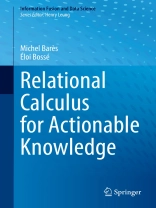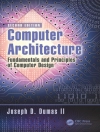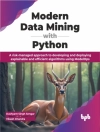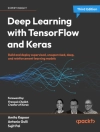This book focuses on one of the major challenges of the newly created scientific domain known as data science: turning data into actionable knowledge in order to exploit increasing data volumes and deal with their inherent complexity. Actionable knowledge has been qualitatively and intensively studied in management, business, and the social sciences but in computer science and engineering, its connection has only recently been established to data mining and its evolution, ‘Knowledge Discovery and Data Mining’ (KDD). Data mining seeks to extract interesting patterns from data, but, until now, the patterns discovered from data have not always been ‘actionable’ for decision-makers in Socio-Technical Organizations (STO). With the evolution of the Internet and connectivity, STOs have evolved into Cyber-Physical and Social Systems (CPSS) that are known to describe our world today. In such complex and dynamic environments, the conventional KDD process is insufficient, and additional processes are required to transform complex data into actionable knowledge.
Readers are presented with advanced knowledge concepts and the analytics and information fusion (AIF) processes aimed at delivering actionable knowledge. The authors provide an understanding of the concept of ‘relation’ and its exploitation, relational calculus, as well as the formalization of specific dimensions of knowledge that achieve a semantic growth along the AIF processes. This book serves as an important technical presentation of relational calculus and its application to processing chains in order to generate actionable knowledge. It is ideal for graduate students, researchers, or industry professionals interested in decision science and knowledge engineering.
Inhoudsopgave
Chapter1. Introduction to Actionable Knowledge: Concepts & Definitions.- Chapter2. Knowledge and its Dimensions.- Chapter3. The Knowledge Chain.- Chapter4. Preliminaries on Crisp and Fuzzy Relational Calculus.- Chapter5. Actionable Knowledge for Efficient Actions.- Chapter6. Relational Calculus for the Generation of Actionable Knowledge.- Chapter7. Conclusion.
Over de auteur
Dr. Éloi Bossé is a researcher in decision support and analytics and information fusion (AIF). He possesses vast experience in applying his research to defense and security related problems, and, more recently, to civilian domains. He is currently the president of Expertise Parafuse Inc., a consultant firm on AIF and decision-support. He holds an academic position as an associate researcher at IMT-Atlantique in Brest, France and a Ph.D. in electrical engineering from the Université Laval in Québec City, Canada. Dr. Bossé has published 7 books on AIF related topics and over 200 papers in journals, book chapters, conference proceedings, and technical reports
Dr. Michel Barès is an independent researcher in Artificial Intelligence (AI). He was formerly a researcher at DRET (Direction des Recherches Et Technologies) under the French Ministry of Defense. There, he conducted innovative research projects on symbolic reasoning, decision support, and distributed AI and was a pioneer in introducing distributed AI to military command decision-making. In parallel to his military research work, he has acted as professor for several universities and specialized French schools. Since 2017, he has served as a scientific advisor for Expertises Parafuse Inc., a small research firm located in Québec City, Canada. Dr. Barès holds a Ph.D. in mathematics from the Pierre and Marie Curie University in Paris, France. He has published 8 academic books on computer science and AI and more than 150 scientific publications in journals, conference proceedings, and technical reports.












